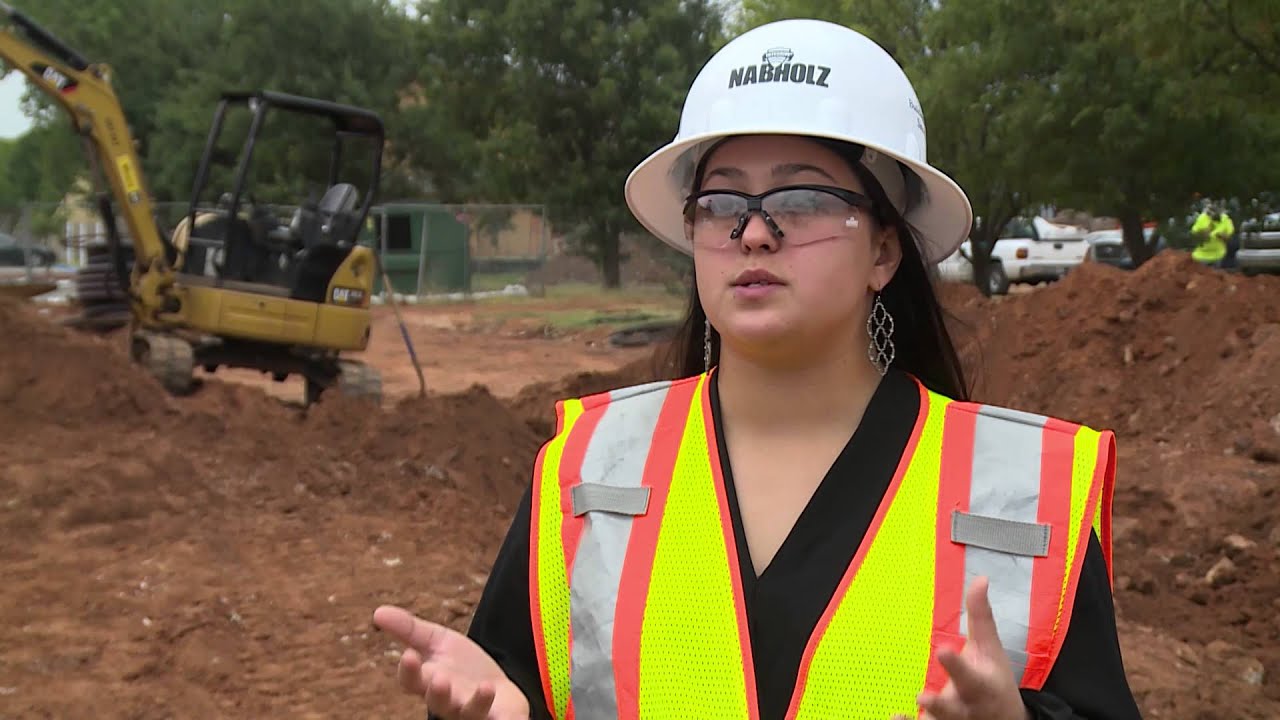Choosing the right careerpath is a crucial decision that can shape your future and overall satisfaction in life. If you have an interest in construction and design, is homebuilding a good career path? The homebuilding industry offers a range of opportunities for individuals with diverse skills and interests.
In this article, we will explore the reasons why homebuilding can be a good career path, responsibilities, and how tostart a career in homebuilding.
Who Are The Home Builders?
Homebuilders are professionals or companies involved in the construction of residential properties, including single-family homes, townhouses, condominiums, and apartment buildings. They are responsible for overseeing the entire homebuilding process, from initial planning and design to the completion of the project.
Homebuilders can be individuals, contractors, or large construction firms specializing in residential construction. They work closely with architects, engineers, subcontractors, and other professionals to ensure the successful execution of the construction project.
Some homebuilders operate as custom builders, working directly with clients to create unique and personalized homes. Others focus on speculative building, constructing homes based on market demand without a specific buyer in mind. Additionally, there are production homebuilders who build large-scale housing developments with standardized designs and features.
Homebuilders play a critical role in shaping communities and meeting the housing needs of individuals and families. They are involved in various aspects of construction, including site preparation, foundation work, framing, electrical and plumbing installations, interior finishes, and landscaping.
What Are The Responsibilities In Homebuilding?

The Construction Project Team: Roles & Responsibilities Of 9 Key Staff Positions
People working in homebuilding have various responsibilities throughout the construction process. Here are some common roles and their corresponding responsibilities:
- Architects/Designers -Architects and designers are responsible for creating the overall design and layout of homes. They work closely with clients to understand their needs, develop architectural plans, and ensure compliance with building codes and regulations. They also collaborate with engineers to integrate structural and mechanical systems into the design.
- Project Managers -Project managers oversee the entire homebuilding process. They coordinate and manage all aspects of the project, including scheduling, budgeting, subcontractor management, and ensuring quality control. They work closely with clients, architects, and subcontractors to ensure the project progresses smoothly and is completed within the specified timeframe and budget.
- Construction Managers/Site Supervisors -Construction managers or site supervisors are responsible for overseeing the construction site. They manage and coordinate the activities of subcontractors, ensure compliance with safety protocols, and monitor the progress of the project. They also handle any issues or challenges that may arise during the construction process.
- Carpenters -Carpenters play a crucial role in the construction of homes. They work with various materials, such as wood, to construct and install framing, walls, roofs, doors, windows, and interior finishes. Carpenters may also be involved in custom woodworking, such as cabinetry or trim work, to add aesthetic details to the home.
- Plumbers and Electricians -Plumbers and electricians are responsible for installing the plumbing and electrical systems in homes. Plumbers handle tasks such as installing pipes, fixtures, and water heating systems, while electricians handle the installation of electrical wiring, outlets, lighting fixtures, and electrical panels. They ensure that the systems are properly connected, functional, and comply with safety standards.
- HVAC Technicians -HVAC (Heating, Ventilation, and Air Conditioning) technicians are responsible for installing, maintaining, and repairing heating, cooling, and ventilation systems in homes. They ensure that homes have proper temperature control and air quality.
- Finishers - Finishers are responsible for the final touches and aesthetic aspects of a home. They install flooring, paint walls, apply wallpaper, and handle other finishing details to enhance the visual appeal of the interior spaces.
These are just a few examples of the various roles and responsibilities within homebuilding. Each role contributes to the overall construction process and requires specialized skills and expertise. Collaboration and effective communication among these professionals are essential to ensure the successful completion of a homebuilding project.
How To Start Career In Home Building?

A Career In The Home Building Industry Is Amazing | Becoming a Home Builder
Starting a career in homebuilding requires a combination of education, practical experience, and a proactive approach. Here are some steps you can take to begin your journey in the homebuilding industry:
- Gain Relevant Education: - Acquire the necessary knowledge and skills by pursuing education in construction-related fields. Consider enrolling in vocational schools, community colleges, or trade programs that offer courses in construction, carpentry, architecture, engineering, or construction management. Formal education can provide a solid foundation and a better understanding of the industry.
- Seek Apprenticeships or Entry-Level Positions -Look for opportunities to gain hands-on experience through apprenticeships or entry-level positions with construction companies or contractors. These opportunities allow you to learn from experienced professionals, understand the practical aspects of homebuilding, and develop essential skills on the job.
- Develop Technical Skills -Focus on building a diverse skill set in areas relevant to homebuilding. This may include carpentry, plumbing, electrical work, masonry, framing, or project management. Seek opportunities to learn and practice these skills through practical projects, mentorship, or specialized training programs.
- Network and Connect with Professionals -Attend industry events, join construction associations or trade organizations, and actively network with professionals in the homebuilding field. Building relationships with industry experts can provide valuable insights, mentorship, and potential job opportunities.
- Obtain Certifications and Licenses -Depending on your desired role in homebuilding, certain certifications or licenses may be required. Research the specific requirements in your area and work towards obtaining the necessary certifications or licenses to enhance your credibility and marketability.
- Stay Updated on Industry Trends -Keep yourself informed about the latest advancements, technologies, and trends in homebuilding. This could involve staying updated with industry publications, attending seminars or workshops, and participating in continuing education programs. A proactive approach to learning will help you stay competitive in the field.
- Showcase Your Work -Build a portfolio showcasing your projects and skills. This can include photographs, blueprints, or descriptions of the work you have done. A portfolio demonstrates your capabilities and can be beneficial when applying for jobs or bidding on projects.
- Continuously Learn and Grow -Homebuilding is an ever-evolving industry, so it's important to embrace a mindset of continuous learning and improvement. Stay curious, seek opportunities for professional development, and explore advanced certifications or specialized training to expand your knowledge and expertise.
Remember, starting a career in homebuilding requires dedication, hard work, and a willingness to learn. By gaining the necessary education, practical experience, and networking with professionals in the field, you can lay a solid foundation for a successful career in the homebuilding industry.
Salary Of Homebuilding Employees

Construction Careers Pay Above Average
The salary of homebuilding employees can vary depending on several factors such as job role, experience level, location, and the size of the construction company. Here are some estimated salary ranges for common homebuilding roles:
- Carpenter -The salary of carpenters in homebuilding can range from $30,000 to $70,000 per year, depending on experience and skill level. Entry-level carpenters typically earn around $30,000 to $40,000, while experienced carpenters or those specializing in high-end custom work can earn $50,000 to $70,000 or more.
- Construction Manager/Project Manager -Construction managers or project managers in homebuilding usually earn higher salaries due to their responsibilities and leadershiproles. The salary range for construction managers can vary from $60,000 to $120,000 per year, with experienced professionals and those working on larger projects potentially earning even more.
- Architect -Architects involved in homebuilding can earn salaries ranging from $60,000 to $120,000 or more annually, depending on their experience and the complexity of the projects they work on. Architectural professionals with specialized expertise and a strong reputation may command higher salaries.
- Plumber/Electrician -Plumbers and electricians working in homebuilding can earn salaries between $40,000 and $80,000 per year, depending on their experience, qualifications, and the region in which they work. Highly skilled or licensed professionals may earn salaries at the higher end of the range.
- HVAC Technician -HVAC technicians in homebuilding typically earn salaries ranging from $40,000 to $70,000 per year. The exact salary can vary based on factors such as experience, certifications, and the demand for HVAC services in the specific region.
Are Homebuilding Jobs Physically Demanding?
Yes, homebuilding jobs can be physically demanding. The nature of the work often involves tasks that require physical strength, stamina, and manual labor. Here are some reasons why homebuilding jobs can be physically demanding:
- Lifting and Carrying -Homebuilders frequently need to lift and carry heavy materials, tools, equipment, and construction components. This can include lifting lumber, roofing materials, concrete, or other heavy objects. Proper lifting techniques and adherence to safety protocols are essential to minimize the risk of injuries.
- Working in Various Weather Conditions -Homebuilding jobs are often conducted outdoors, exposing workers to different weather conditions. This can include working under the scorching sun, in cold temperatures, or during inclement weather. Working in extreme temperatures or adverse weather conditions can add physical strain to the job.
- Physical Labor -Many homebuilding tasks involve physical labor, such as digging foundations, framing structures, installing drywall, and carrying out concrete work. These activities can require repetitive motions, bending, kneeling, climbing, and operating hand and power tools, which can be physically demanding over extended periods.
- Working at Heights- Homebuilders often work at elevated heights, such as when constructing roofs, installing siding, or working on upper-level floors. This requires balance, agility, and the ability to work safely while being physically elevated, which can add to the physical demands of the job.
- Long Hours and Tight Deadlines -Homebuilding projects often operate on tight deadlines, requiring workers to put in long hours to meet construction schedules. This can result in extended periods of physical exertion and stamina to complete tasks within the designated time frame.
It's important for homebuilders to prioritize their physical well-being and practice proper safety measures, such as using personal protective equipment (PPE), taking breaks when needed, and seeking medical attention for any work-related injuries. Building physical fitness, maintaining a healthy lifestyle, and implementing ergonomic practices can also help mitigate the physical demands of homebuilding jobs.
Career Growth In Homebuilding
Career growth opportunities in homebuilding can be abundant for individuals who are dedicated, motivated, and continuously seeking to improve their skills and knowledge. Here are some avenues for career growth in the homebuilding industry:
- Advancement within Construction Companies -Starting at entry-level positions, individuals can work their way up through the ranks within construction companies. With experience and demonstrated competence, you can progress to roles with greater responsibility, such as a lead carpenter, foreman, project manager, or construction manager. Advancement opportunities may be based on performance, leadership skills, and the ability to successfully manage projects.
- Specialization and Expertise -Developing expertise in a specific area of homebuilding can lead to increased career growth. For example, focusing on green building practices, sustainable construction, energy efficiency, or incorporating advanced technologies can open up opportunities to work on specialized projects or take on leadership roles in those areas.
- Entrepreneurship -Some individuals choose to start their own homebuilding or contracting businesses. Entrepreneurship allows you to have control over your projects, clients, and the direction of your career. Starting a businessrequires knowledge of the industry, strong management skills, and a solid reputation, but it can provide significant opportunities for growth and financial success.
- Continuing Education and Professional Development -Investing in ongoing education and professional development is crucial for career growth in homebuilding. Attend workshops, seminars, and conferences to stay updated on the latest trends, building codes, and technologies in the industry. Pursuing certifications and advanced degrees related to construction management, architecture, or engineering can also enhance your expertise and open doors to higher-level positions.
- Management and Leadership Roles -As you gain experience and demonstrate leadership skills, you may have the opportunity to move into management or leadership roles within homebuilding companies. This can involve overseeing multiple projects, managing teams, and making strategic decisions that impact the company's growth and success.
- Custom Homebuilding and High-End Projects - Working on custom homebuilding projects or high-end residential developments can provide unique career growth opportunities. These projects often involve intricate designs, premium materials, and advanced construction techniques, allowing you to showcase your skills and craftsmanship on a larger scale.
- Industry Associations and Networking -Joining professional associations and actively networking with industry peers can lead to career growth opportunities. Networking allows you to build relationships, gain exposure to new projects, and stay informed about job openings or potential collaborations.
Why Choose A Career In Home Building?

Why choose a career in construction?
Choosing a career in homebuilding can offer numerous advantages and opportunities. Here are some compelling reasons to consider a career in homebuilding:
- Job Security - The demand for housing is a fundamental need, and the construction of new homes is a constant requirement in both urban and rural areas. As long as there is a need for housing, there will be a demand for homebuilders. This provides a level of job security and stability in the industry.
- Diverse Career Paths -Homebuilding offers a wide range of career paths and opportunities. Whether you're interested in hands-on construction work, architectural design, project management, or specialized trades such as plumbing or electrical work, the homebuilding industry can accommodate various skill sets and interests.
- Creativity and Fulfillment -Homebuilding allows you to contribute to the creation of functional and aesthetically pleasing living spaces. From designing innovative floor plans to constructing custom features, you have the opportunity to use your creativity and craftsmanship to bring homeowners' visions to life. The sense of fulfillment that comes from seeing the finished product and knowing you had a hand in creating someone's home can be highly rewarding.
- Job Variety and Learning Opportunities -Homebuilding is a dynamic industry that provides opportunities for continuous learning and growth. The construction process involves various stages and tasks, allowing you to expand your skills and knowledge. From foundation work to finishing details, each phase presents unique challenges and learning experiences, ensuring that no two projects are exactly the same.
- Financial Rewards -The homebuilding industry offers the potential for financial rewards. As you gain experience and expertise, you may have the opportunity to earn higher salaries, take on more challenging projects, or even start your own homebuilding business. Additionally, the demand for quality homes can lead to lucrative opportunities in custom homebuilding or high-end residential developments.
- Contribution to Communities -Homebuilders play a vital role in shaping communities by providing safe and comfortable homes for individuals and families. By constructing quality homes, you contribute to the overall well-being and development of communities. Your work has a lasting impact, creating spaces where people can live, grow, and thrive.
- Job Satisfaction -For many, working in homebuilding offers a sense of pride and job satisfaction. Seeing tangible results of your efforts, overcoming construction challenges, and working as part of a team can create a fulfilling work environment. Knowing that your work contributes to the betterment of people's lives and provides them with a place to call home can be incredibly rewarding.
Choosing a career in homebuilding allows you to combine practical skills, creativity, and the opportunity to make a lasting impact. It's a field that offers job security, diverse career paths, and personal fulfillment. If you enjoy working with your hands, appreciate the construction process, and value the importance of quality housing, a career in homebuilding can be a fulfilling and worthwhile choice.
Education And Certification Requirements For A Career In Home Building

Rethink Careers in Construction: For Students
A career in homebuilding can involve various roles, each with its own education and certification requirements. Here are some common education and certification paths for different careers in homebuilding:
General Contractor/Construction Manager
Many construction managers and general contractors have a bachelor's degree in construction management, civil engineering, or a related field. These programs typically cover construction principles, project management, cost estimation, building codes, and construction law. Some professionals may also start as carpenters or tradespeople and gain on-the-job experience to progress into management roles.
Certifications: While not always mandatory, obtaining certifications can enhance your credentials and demonstrate your expertise in construction management. Examples of relevant certifications include the Certified Construction Manager (CCM) offered by the Construction Management Association of America (CMAA) and the Project Management Professional (PMP) certification offered by the Project Management Institute (PMI).
Architect/Designer
To become an architect, a professional degree in architecture (typically a Bachelor of Architecture or Master of Architecture) from an accredited university is required. These programs focus on architectural design, building systems, structural engineering, construction materials, and sustainable design. Following graduation, architects must complete a period of supervised work experience and pass a licensing examination.
Certifications: Architects can pursue optional certifications to demonstrate expertise in specialized areas, such as Leadership in Energy and Environmental Design (LEED) certification for sustainable design or the National Council of Architectural Registration Boards (NCARB) certification for reciprocity and portability of architectural licenses across states.
Carpenter
Becoming a carpenter typically involves a combination of formal education and on-the-job training. Some individuals start with vocational training or apprenticeships, which provide a blend of classroom instruction and hands-on experience. These programs teach carpentry skills, blueprint reading, building codes, safety protocols, and construction techniques.
Certifications:While not always required, carpenters can pursue voluntary certifications to enhance their skills and marketability. The National Association of Home Builders (NAHB) offers various certifications, such as the Certified Graduate Carpenter (CGC) or Certified Aging-in-Place Specialist (CAPS), which focus on specialized areas of carpentry.
Plumber/Electrician/HVAC Technician
These trades typically require completion of a formal apprenticeship program or vocational training. Apprenticeships combine classroom instruction and supervised on-the-job training to develop skills in plumbing, electrical work, or HVAC systems. These programs cover safety procedures, code compliance, system installation, repair, and maintenance.
Certifications:Plumbers, electricians, and HVAC technicians often require licensure or certification to practice professionally. The specific requirements vary by jurisdiction, but typically involve passing an examination and meeting experience or education criteria. Examples of relevant certifications include the Journeyman Plumber/Electrician or Master Plumber/Electrician licenses issued by state licensing boards.
People Also Ask
What Skills Are Required For A Homebuilding Career?
A homebuilding career requires a combination of technical skills and soft skills. Technical skills may include knowledge of construction techniques, blueprint reading, carpentry, plumbing, electrical work, and project management. Soft skills such as communication, problem-solving, teamwork, and attention to detail are also crucial for success in the industry.
Is A College Degree Necessary For A Career In Homebuilding?
While a college degree is not always necessary for a career in homebuilding, it can be beneficial, especially for management or specialized roles. Many individuals enter the field through vocational training or apprenticeships. However, higher education in construction management, civil engineering, architecture, or a related field can provide a competitive edge and open doors to more advanced positions.
What Are The Job Prospects Like In The Homebuilding Industry?
The job prospects in the homebuilding industry are generally positive. The demand for housing, renovations, and infrastructure development ensures a steady stream of job opportunities. With urbanization and population growth, there is a continuous need for skilled homebuilders. However, local market conditions and economic factors can influence job availability in specific regions.
Conclusion
Homebuilding can be a highly rewarding career path for those passionate about construction and design. Whether you choose to work as a carpenter, project manager, architect, or entrepreneur, the homebuilding industry provides a platform to make a tangible impact on people's lives while enjoying personal growth and professional success. If you have a passion for building and enjoy the satisfaction of seeing your work come to life, embarking on a career in homebuilding may be the right choice for you.

